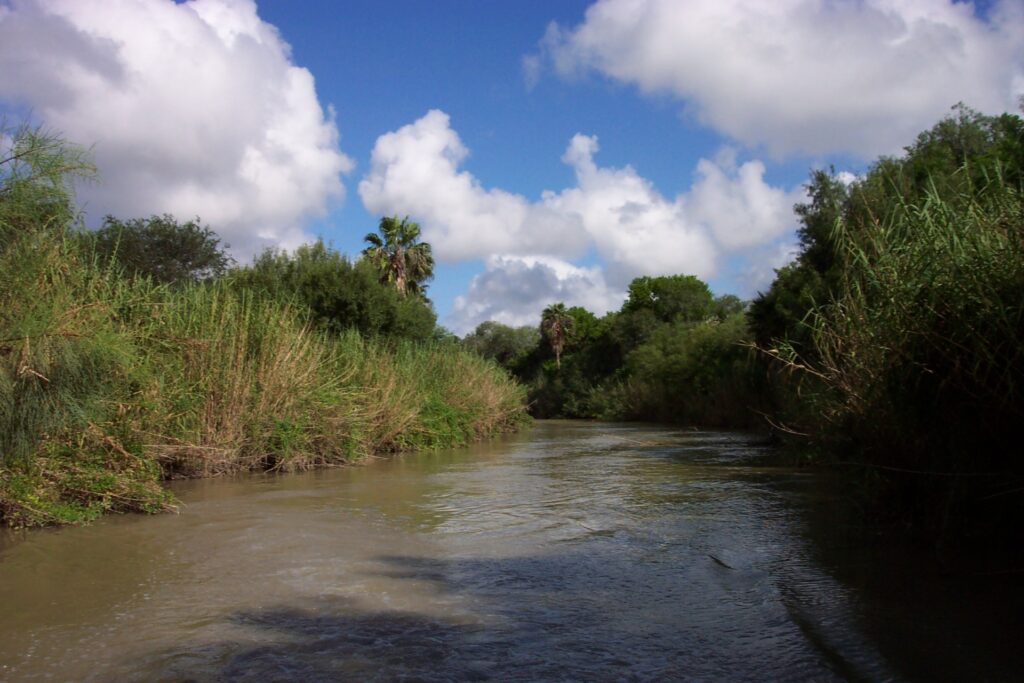Riparian and stream ecosystem workshop for Arroyo Colorado watershed set for April 30 in Weslaco
Local landowners and residents invited, continuing education units are available

The Texas Water Resources Institute, TWRI, will host a free Texas Riparian and Stream Ecosystem Education Program workshop in Weslaco on April 30.
The event will be held from 8 a.m.-4:30 p.m. at the Texas A&M AgriLife Research and Extension Center at Weslaco, 2401 Business Highway 83 East. The morning session will be at the center and the afternoon session will include a walk and presentations along the Arroyo Colorado.
Co-hosted by the Texas A&M AgriLife Extension Service and the Texas Riparian Association, the workshop serves residents who are interested in land and water stewardship in the Arroyo Colorado Watershed.
“Riparian education workshops motivate informed landowners and local residents to adopt and support practices to better manage riparian and stream ecosystems,” said Alexander Neal, TWRI program specialist, Bryan-College Station. “Not only do water quality and quantity directly benefit from the proper management, protection and restoration of riparian areas, but also enhanced are the soundness of stream banks, fish communities and aquatic habitats, just to name a few.”
All attendees must RSVP by April 23 online at tx.ag/WeslacoApril30 or email Neal at [email protected].
Arroyo Colorado riparian ecosystem main focus of workshop
The Arroyo Colorado Watershed is the focus of water quality improvement efforts by stakeholders.
“Stakeholders recognize successful water quality improvement requires implementing a variety of management strategies,” said Jaime Flores, TWRI program coordinator. “The riparian and stream workshop is an educational event supporting this effort.”
The workshop will focus on the nature and function of stream and riparian zones as well as the benefits and economic impacts of properly functioning riparian systems.
Riparian areas – the green vegetated land areas adjacent to the bank of a stream, creek, bayou, river or lake – are unique and important ecosystems that provide many benefits including habitat and forage, Neal said.
“The goal of the workshop is for participants to better understand riparian and watershed processes, the benefits of healthy riparian areas and what resources are available to prevent degradation while improving water quality,” he said.
Riparian and stream workshop agenda
Presentations will be given by representatives of TWRI, the U.S. Department of Agriculture Natural Resources Conservation Service, AgriLife Extension, Texas Parks and Wildlife Department, the Texas A&M Forest Service and the Texas Riparian Association.
The program also will include a lunchtime presentation with a catered lunch being offered for $15 or participants can opt to bring their own lunches.
Neal said they are able to offer the workshop without cost thanks to program funding provided through a Clean Water Act Section 319(h) nonpoint source grant from the Texas State Soil and Water Conservation Board and the U.S. Environmental Protection Agency.
Ricky Linex, retired wildlife biologist, Natural Resources Conservation Service, Weatherford, said participants will receive a certificate of completion and appropriate continuing education unit certificates at the conclusion of the training.
Continuing education credits offered
The workshop offers many types of continuing education units, including three units — two general and one integrated pest management — for Texas Department of Agriculture pesticide license holders.
Foresters and professional loggers can receive six hours from the Texas Forestry Association, six and a half hours from the Society of American Foresters, and eight hours from the International Society of Arboriculture. It offers seven credits from Texas Floodplain Management Association, seven hours for certified crop advisers and six hours for Texas Nutrient Management Planning specialists. The program may also be used for continuing education units for professional engineers and architects.
The riparian education program is managed by TWRI, a unit of Texas A&M AgriLife Research that brings together expertise from across the Texas A&M University System.
For more information, contact Neal or visit texasriparian.org or facebook.com/TexasRiparianAssociation.





